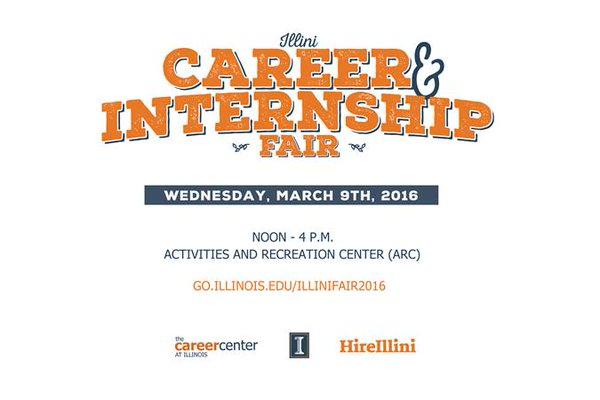Are employers interested in talking to you?
YES.
Desirable English/CW major skills
- Communication (both oral and written)
- Knowledge about cross-cultural issues, diversity, inclusivity
- Research and information retrieval
- Analytical thinking
- Creative thinking and problem-solving
- Effective with ambiguity, uncertainty, incomplete information
- Learning and synthesizing new ideas
- Teamwork
(English majors: You’ve explored 1500 years of the written word, from Beowulf to Derrida, some of the densest and most challenging prose ever written: complexity doesn’t scare you.)
(Creative writing majors: You’re skilled at working with groups to bring out the best in yourself and others; you know how to bring creative rigor to any problems and how to hold a team to high standards.)
Continue reading “Getting Ready for the Illini Career and Internship Fair”


 technology, or the sciences. To learn about alternative career paths, I recently talked with Austin Millet, who graduated with a degree in English in 2010 and currently works as a Project Operations Coordinator at VelocityEHS in Chicago. Here’s what he had to say about his experiences after college:
technology, or the sciences. To learn about alternative career paths, I recently talked with Austin Millet, who graduated with a degree in English in 2010 and currently works as a Project Operations Coordinator at VelocityEHS in Chicago. Here’s what he had to say about his experiences after college: